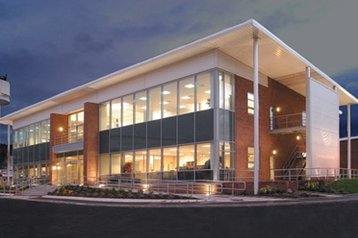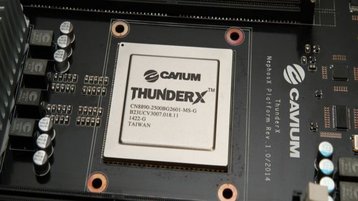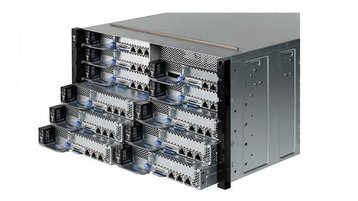Lenovo is working on energy-efficient servers based on ARM processors, in the UK, thanks to a research partnership it inherited when it bought IBM’s x86 server business in 2014.
The project, at the National Science and Technology Facilities Council’s Hartree Centre, will look at ways to build high performance computing (HPC) systems based on low-energy processors using designs from ARM Holdings.
Lenovo will develop a prototype ARM-based server within its dense computing NeXtScale platform, using 64-bit ThunderX processors from Cavium. Hartree will contribute software and the project will work on best practices for ARM-based server deployments.
Chancing their ARM
While ARM technology has shown promise, the biggest hurdle to overcome is the build-out of an ecosystem to support a production environment,” says the Centre’s release, explaining that the project will look at scale-out versus scale-up systems given a defined power budget.
“The Hartree centre will be actively developing a robust software ecosystem encompassing compilers, linkers, numerical libraries and tools – all of which are fundamental to the adoption of these types of technologies,” said a statement from Neil Morgan, program manager, energy efficient computing at Hartree.
In a call with Datacenter Dynamics, Morgan explained that 64-bit ARM processors are still new, and lack a lot of the fundamental software required for routine use. With help from the University of Manchester, the project will develop compilers and linkers for the Cavium chips.
It will also work on running supercomputing loads on the system, and monitor the energy performance compared with running the same loads on the IBM Blue Wonder supercomputer at the Centre.
The project will look at a narrow set of applications, and use workload-specific server designs instead of using general-purpose servers, in a big to handle the increasing amounts of data being put to new uses in data centers.
Lenovo’s dense servers
The Lenovo ARM-based prototype will be a module for the NeXtScale platform, a dense server system sometimes seen as a competitor to HP’s Moonshot, which is used in high-performance computing, cloud and analytics. One 6U NeXtScale enclosure will hold up to 12 ARM-based servers, delivering 1,152 cores, Lenovo’s release says.
The Hartree Centre is a research collaboration between STFC’s Scientific Computing Department and business, partially funded by the UK government.
Hartree has two IBM supercomputers including Blue Wonder, and the project to work with ARM servers was conceived before the IBM server division was sold. Lenovo has opted to continue the work, which is being supported as part of a £19m UK governemtn campaign to improve energy efficient computing.
The Centre also received £113 million in the government’s Autumn statement.



